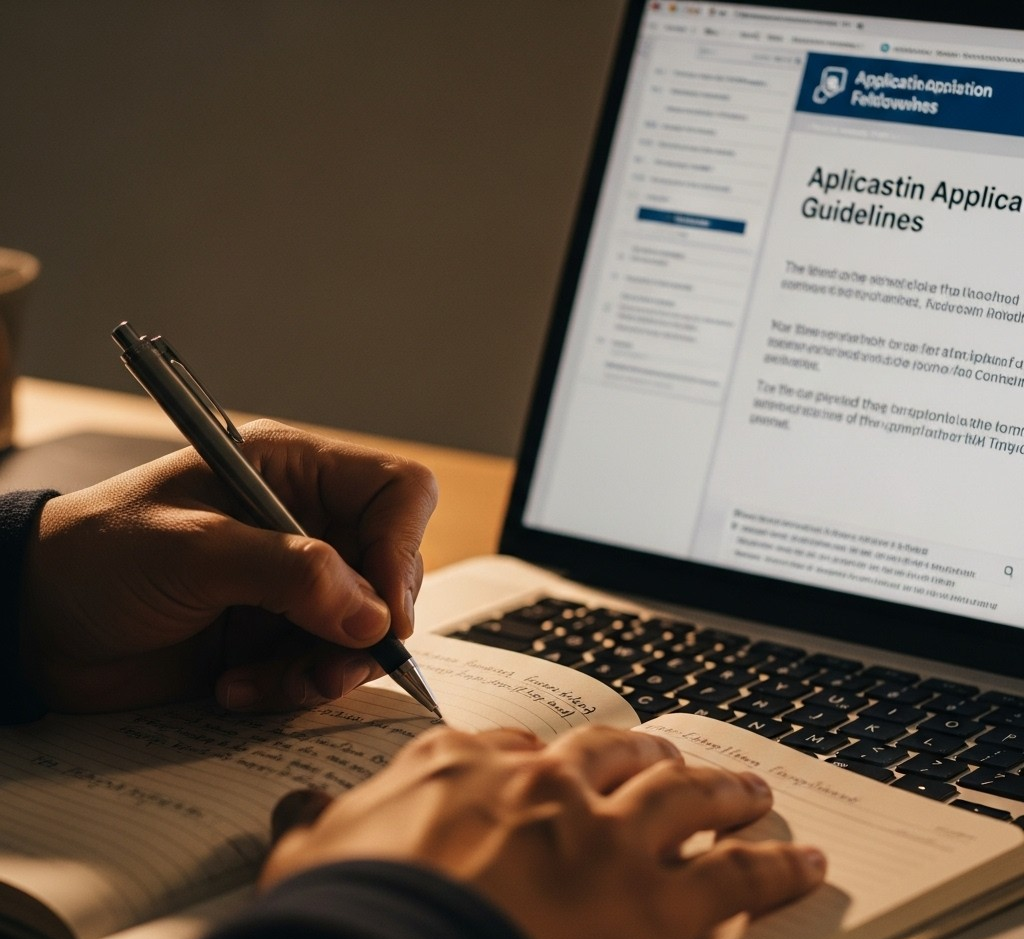Are you an ambitious, early-career experimental scientist or engineer with a groundbreaking vision for the future of your field? Do you dream of establishing your own independent research program in a vibrant, interdisciplinary environment? Then the Rowland Fellows Program 2026 at Harvard University might just be the transformative opportunity you’ve been seeking.

The Rowland Fellows Program 2026 at Harvard University offers an extraordinary pathway for exceptional early-career experimental scientists and engineers to achieve true research independence and make a profound impact. It’s a testament to Harvard’s commitment to nurturing the next generation of scientific leaders.
What is the Rowland Fellows Program?
The Rowland Fellows Program, housed within the prestigious Rowland Institute at Harvard, is a highly competitive fellowship designed to foster independent, experimental research across all fields of science and engineering.Established by Edwin H. Land, the visionary founder of Polaroid Corporation, the Institute’s mission is to support high-risk, creative research that bridges traditional disciplinary boundaries. It’s a place where innovation isn’t just encouraged; it’s the very foundation.
Fellows are granted the incredible privilege of operating as independent Principal Investigators (PIs) at Harvard University, overseeing their own labs, managing substantial budgets, and mentoring their own teams. This level of autonomy for early-career scientists is truly exceptional and is what makes the Rowland Fellowship a game-changer for those ready to lead.
Why the Rowland Fellows Program 2026?
The Rowland Fellows Program 2026 represents the next cycle of this esteemed fellowship, offering unparalleled resources and a supportive ecosystem for cutting-edge experimental research. Here’s a closer look at what makes this opportunity so compelling:
- True Independence: Unlike many postdoctoral roles, you are empowered to establish and lead your own research group. You define your research agenda, manage your lab space, and recruit your own personnel, including postdoctoral fellows, postbacs, and undergraduates.
- Generous Funding: Fellows receive dedicated laboratory space, significant start-up funding for capital equipment, and a substantial yearly budget (starting at $225,000) for general operations, lab supplies, and personnel salaries. This financial backing allows for ambitious, resource-intensive projects. Your salary as a Rowland Fellow also begins at a competitive $89,999 per year, with full Harvard benefits, providing financial stability as you build your career.
- Interdisciplinary Environment: The Rowland Institute actively promotes cross-disciplinary collaboration. The program welcomes experimentalists from physics, chemistry, biology, engineering, neuroscience, and beyond, fostering a vibrant intellectual melting pot where novel ideas can emerge at the intersections of fields.
- Exceptional Support: Beyond funding, fellows benefit from dedicated scientific and technical support staff who assist with experimental design and fabrication, access to state-of-the-art shared facilities across Harvard, and comprehensive mentoring for lab culture, scientific writing, budgeting, and career development.

Eligibility: Are You the Next Rowland Fellow?
The Rowland Fellows Program seeks outstanding early-career experimentalists. To qualify for the 2026 cycle, applicants should meet the following criteria:
- Doctoral Degree: You should either be in the process of completing your PhD or have received your PhD after May 1, 2024. Crucially, your doctoral degree must be completed prior to starting the Fellowship term.
- Experimental Focus: Your proposed research must be experimentally focused in any field of science or engineering. The program is intentionally broad, embracing fields from fundamental physics to applied engineering. However, it’s important to note that the program cannot support human subjects research or clinical research due to the shared laboratory environment.
- Global Talent Welcome: The program encourages applications from the broader scientific community, accepting candidates from any accredited academic institution, both within the United States and internationally. US citizens and non-citizens are eligible, and the Rowland Institute staff can assist with the visa process if needed.
Navigating the Application Process for the Rowland Fellows Program 2026
The application for the Rowland Fellows Program 2026 is meticulous, designed to identify individuals with both exceptional scientific prowess and the potential for independent leadership. Here’s a detailed breakdown of the process and how to prepare:
Key Dates for the 2026 Cycle
- Application Deadline: August 15, 2025
- Letters of Recommendation Due: August 29, 2025
- Mid-September: Notification for applicants who do not meet eligibility criteria.
- Mid-October 2025: Candidates contacted for first-round Zoom interviews; unsuccessful candidates notified.
- November 13th-14th, 2025: Finalists invited to the Institute for two days of symposia, presentations, and interviews.
- Early December 2025: Selection decisions made and finalists informed.
Crafting a Winning Application
Your application is your opportunity to showcase your scientific vision and your readiness for independent research.
- Curriculum Vitae (CV): This should be comprehensive, detailing your academic background, research experience, publications, presentations, awards, and any other relevant accomplishments.
- One-Page Research Proposal (Statement of Research): This is arguably the most critical component.
- Be Bold and Original: The Rowland Institute seeks “high-risk, creative research.” Don’t shy away from presenting an idea that might seem unconventional or highly ambitious. Purnati Khuntia, a successful Rowland Fellow, emphasized that her winning proposal was for a “unique and risky idea” not actively pursued by many, yet important to her field.
- Focus on Experimental Design: Since the fellowship emphasizes experimental science, clearly articulate your experimental approach. How will you test your hypothesis? What specific techniques will you employ?
- Feasibility within Five Years: While ambitious, your proposal should also demonstrate a clear path for progress within the five-year fellowship term.
- Interdisciplinary Spirit: If your research bridges disciplines, highlight this. The Institute values work that transcends traditional boundaries.
- Vision Statement (One-page limit): This is a relatively new and important component. It asks you to describe how your personal values and experiences in academia inform your plan for building a productive and supportive culture within your research group. This section demonstrates your leadership potential beyond just scientific ideas.
- Letters of Recommendation: You will need to provide contact information for three or four referees. Automated emails will be sent to them with submission deadlines. Choose recommenders who know your work intimately and can speak to your research abilities, independence, and potential for leadership.

Interview Preparation
If you are selected for an interview, this is your chance to articulate your research vision and demonstrate your passion.
- First-Round Zoom Interview: This will likely be a more focused discussion about your research proposal and your fit for the program.
- Finalist Visit (On-site): This two-day event is comprehensive. You’ll participate in a symposium, give a brief presentation on your past and proposed research, and interview with current Rowland Fellows, staff, and the admissions committee. Be prepared to discuss your work in detail, answer challenging questions, and engage with a diverse scientific community. As Rowland Fellow Purnati Khuntia shared, the Rowland team is very supportive during the interview process, even for virtual candidates.
A Note on AI Tools
The Rowland Institute explicitly asks applicants to declare the use of AI tools in their application and to describe their use. Importantly, their use should not replace your original thinking. The required materials seek to elicit responses that reflect your personal experience and unique motivations and should be written in your own voice. I’ve seen many successful applicants leverage AI for brainstorming or refining language, but the core ideas and the voice must always be yours.
Life as a Rowland Fellow
Becoming a Rowland Fellow means joining a distinguished community of scientists at the forefront of their fields. Beyond the lab, you’ll be part of the vibrant Harvard University ecosystem, with access to unparalleled intellectual resources, seminars, and networking opportunities.
The term of the Fellowship is for up to five years, providing ample time to establish your research program and make significant strides in your chosen area. The flexibility in the start date, generally between July and September, allows for smooth transitions.
Chart Your Course to Excellence: The DAAD PRIME Fellowships 2026 for Germany
Your Gateway to a PhD in India: The TWAS-SN Bose Postgraduate Fellowship 2025
FAQ
Q1: What kind of research is not supported by the Rowland Fellows Program?
The Rowland Fellows Program specifically does not support human subjects research or clinical research of any type.This is primarily due to the design of the fellowship, which encourages multiple disciplines to share overlapping laboratory spaces, making human subjects research logistically incompatible with the Institute’s environment.
Q2: Is there an age limit for applying to the Rowland Fellows Program?
While there isn’t an explicit age limit, the program is designed for “early-career” experimentalists. The eligibility criteria emphasize that applicants should either be completing their PhDs or have received their PhD within a specific timeframe (after May 1, 2024, for the 2026 cycle). This typically targets individuals who are very recently post-PhD or still in the final stages of their doctoral studies.
Q3: Can I apply if my PhD is in a theoretical field?
No, the Rowland Fellows Program is exclusively for experimental scientists and engineers. Your proposed research must have a strong experimental component. While theoretical underpinnings are valuable, the core of your work must involve hands-on experimental investigation.
Q4: How many Rowland Fellows are selected each year?
While the exact number can vary, the Rowland Institute typically aims to appoint around two new Rowland Fellows each year, with the total number of active Fellows at any given time being about ten. This ensures a focused and supportive environment for each Fellow.
Q5: What kind of career support do Rowland Fellows receive?
Rowland Fellows receive comprehensive career development support, including mentoring on developing a productive lab culture, assistance with scientific writing and budgeting, and ongoing guidance to help them transition into successful independent careers in academia or other sectors.






